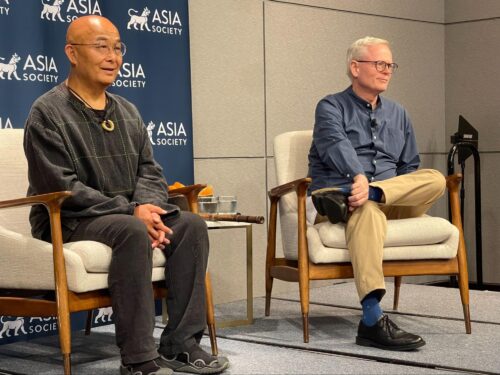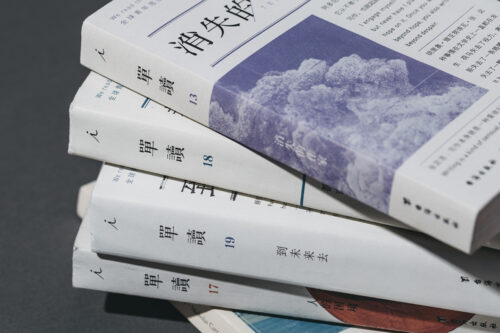Did the U.S. introduce a deadly virus to China? In Jack London’s fiction, sure

“The Unparalleled Invasion,” by Jack London, belongs to a Western “Yellow Peril” literary topos characterized by fear of the Chinese.
The short story is, under an unfortunate set of circumstances, once again relevant.

Almost immediately after the COVID-19 outbreak became international news in early January, my wife confided in me that her mother in Jiangsu Province believes the disease originated in America. Her thinking: The virus is the work of evildoer Americans who somehow dropped it off in Wuhan to stop China’s seemingly unstoppable rise. To me, this sounded like the kind of conspiracy theory usually confined to message boards that don’t show up on internet searches.
But last week, none other than the deputy director of China’s Foreign Ministry Information Department, Zhào Lìjiān 赵立坚, brought this rumor to public light, tweeting, “It might be US army who brought the epidemic to Wuhan.” Soon after, U.S. Secretary of State Mike Pompeo scolded China’s Foreign Affairs director, Yáng Jiéchí 杨洁篪, over the “disinformation” and “outlandish rumors” being spread through government channels. In so many words, he was accusing Zhao of fiction.
Which makes sense, because 110 years ago, this scenario — the U.S. military bringing death by disease to China — was indeed captured in fiction, by American literary icon Jack London.
In 1910, London — already famous for his novels The Call of the Wild and White Fang, and infamous for his passionate defense of socialism — published a short story in the now-defunct American magazine McClure’s called “The Unparalleled Invasion,” in which the U.S. deploys a motley of bio-weapons to combat China’s rise. The story is filled with dated and problematic language to describe Chinese people, with the narrator matter-of-factly prescribing genocide as the only reasonable answer to the “Chinese problem.”
With London back in the news as of late, thanks to The Call of the Wild being given the Hollywood treatment, I got to thinking of “The Unparalleled Invasion.” The story was published during a time when it was fashionable to be afraid of the Chinese, when American readers might have celebrated China falling to a “score of plagues,” including smallpox, scarlet fever, and other “bacteria, and germs, and microbes, and bacilli, cultured in the laboratories of the West.”
It made me think of the war of words currently being waged between top-level Chinese and American officials, and how President Donald Trump insists on calling the coronavirus the “Chinese Virus.” And it made me think that this passage from the story kind of encapsulates how Washington and Beijing must view each other now:
BETWEEN THEM AND CHINA WAS NO COMMON PSYCHOLOGICAL SPEECH. Their thought-processes were radically dissimilar. There was no intimate vocabulary. The Western mind penetrated the Chinese mind but a short distance when it found itself in a fathomless maze. The Chinese mind penetrated the Western mind an equally short distance when it fetched up against a blank, incomprehensible wall. It was all a matter of language. There was no way to communicate Western ideas to the Chinese mind. China remained asleep. The material achievement and progress of the West was a closed book to her; nor could the West open the book.
In the story, which you can read here (be warned about disturbing racial language), China modernizes under the influence of neighboring Japan in the early 20th century before fighting a war against Japan and annexing territory that was previously under Japanese control, including Manchuria and Korea. The Chinese nation then undergoes a population boom and begins expanding territorially. Western nations, eager to halt China’s rise, agree to go along with an American scientist’s plan to unleash biological weapons. All survivors are later killed on sight.
The story ends with a Western expeditionary force venturing into the vastness of a desolate China: “They found China devastated, a howling wilderness through which wandered bands of wild dogs and desperate bandits who had survived.” Western nations later agree “never to use against one another the laboratory methods of warfare they had employed in the invasion of China.”
When the short story first appeared, the U.S. was just over 28 years into the 1882 Chinese Exclusion Act, a policy that essentially banned Chinese immigration. The act was kept in force long beyond its intended expiry date, and was not officially repealed until 1943. Thirteen years after the release of “The Unparalleled Invasion,” Canada — a country London called home in the late 1800s — imposed the Chinese Immigration Act of 1923, shutting the door to Chinese migrants for nearly a quarter-century. These laws were in response to the “Yellow Peril” that swept across parts of the Western world in the 19th and 20th centuries, a racist ideology centered around fear of Chinese and Japanese migrants. London’s story plays heavily into the fears of the time.
It’s unlikely that Zhao Lijian and Chinese diplomats have read “The Unparalleled Invasion,” but it’s apparent that they believe China is still under assault from a coalition of powers from “the West.” In London’s short story, China mobilizes its army to prepare for an invasion from Europe and the U.S., only to be bombarded by “tubes of fragile glass” carrying unseen viruses and bacteria. In real life, the Chinese Communist Party likewise believes — mistakenly, to varying degrees — that it is being bombarded by the unseen, everything from Western soft power in the form of Hollywood movies to newspaper headlines (e.g., The Wall Street Journal’s objectively terrible “China Is the Real Sick Man of Asia” headline from early February). Pushing conspiracy theories such as “the U.S. military is responsible for COVID-19” is their way of fighting back, however lamentable. The scientific community, including Chinese researchers, may agree that the novel coronavirus originated in China late last year, but as Trump has shown, facts don’t seem to matter in political spats.
I can’t help but wonder what London, a raging socialist who has also been accused of harboring white supremacist tendencies, would think about all this. It’s impossible to say, but this much is clear: “The Unparalleled Invasion” offers fascinating insight into the racial and anti-immigrant fears that gripped much of the Western world in the late 19th and early 20th centuries, and while the world has come an admirable ways since, xenophobia is threatening to roar back with a vengeance. London’s “Chinese problem” has become President Trump’s “Chinese Virus,” while Asian people around the world are reporting discrimination and violence in the wake of COVID-19. Even without the threat of biological destruction, we have reason to worry.






